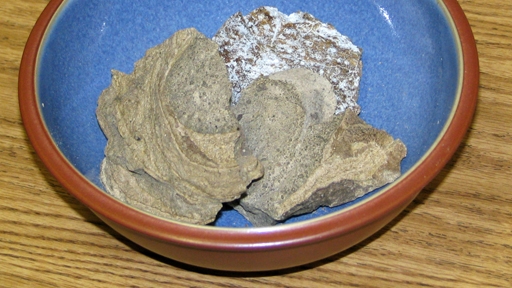 Whale vomit (also known as ambergris)
Whale vomit (also known as ambergris)
Three men hit the jackpot when they found 176 pounds of floating whale vomit worth an estimated $2.8 million.
The fishermen were reported to have discovered one giant chunk off the coast of Qurayat in the northeastern part of Oman.
One of the men said in the report, “We used a rope to collect it and carry it inside the boat. I was told earlier that ambergris has an icky smell, but after a couple of days it imparts a pleasant scent. We rushed back to the beach with joy and happiness.”
While you might not consider a marine animal’s waste to be valuable, this particular waxy substance called “ambergris” is a heavily sought after component of perfumes.

Most perfumers have switched to using synthetic ambroxan instead of whale vomit due to concerns with animal welfare (the use encourages hunting), but some countries still trade it legally. The substance acts as a fixative, allowing the scent to last longer on your skin.
Ambergris is formed in the stomachs of sperm whales. Scientists theorize that because the sperm whale diet consists mainly of giant squids with sharp, pointy beaks, ambergris coats the digestive system to form a protective layer.
The waxy substance is generally found in lumps of random shapes and sizes, and generally ranges in weight from 15 to 100 grams. Initially, it has an unpleasant fishy odor; as it ages, it develops a sweet, musky scent.
These fishermen are surely thanking the whale that provided them with such an unexpected fortune. “I’ll wait to see how this sale will go and later I’ll think of changing my career and enter the real-estate sector to live a better life,” one of the crew members said.
Learn more about this surprising substance in the video below:




